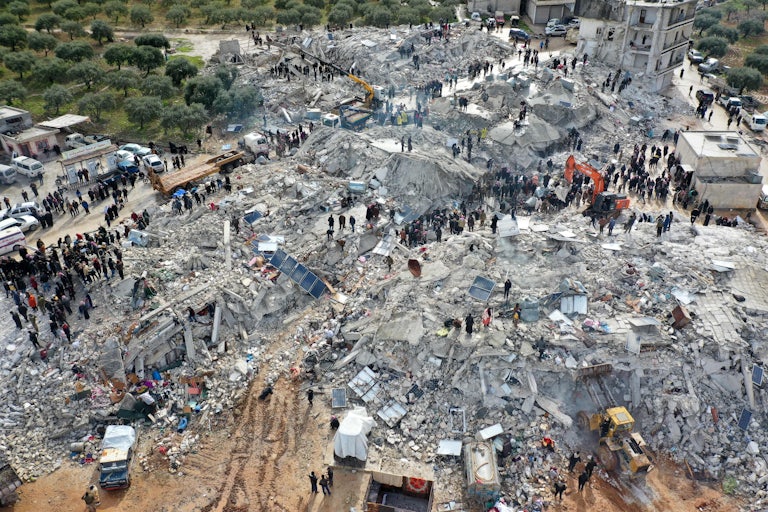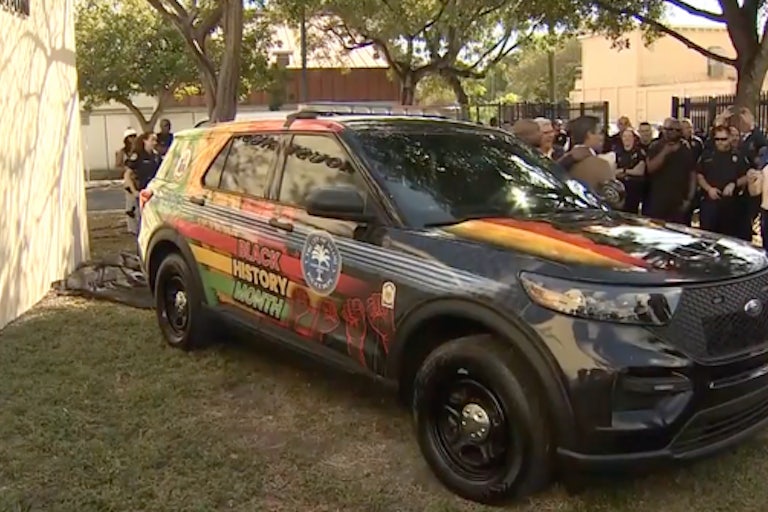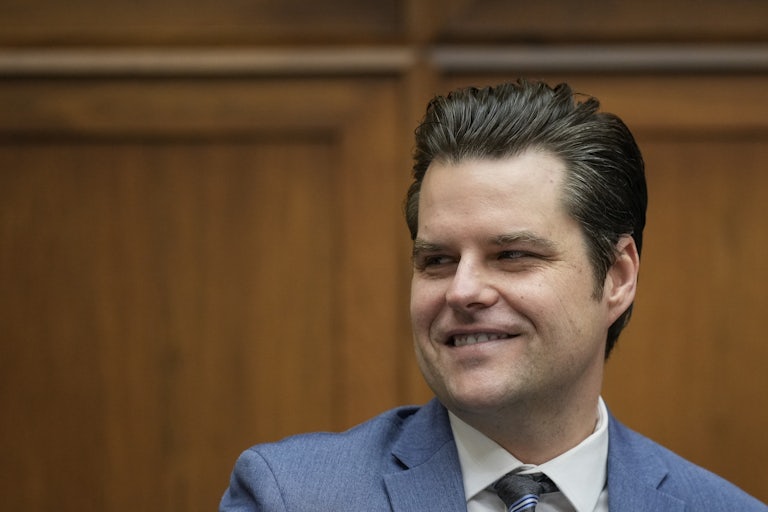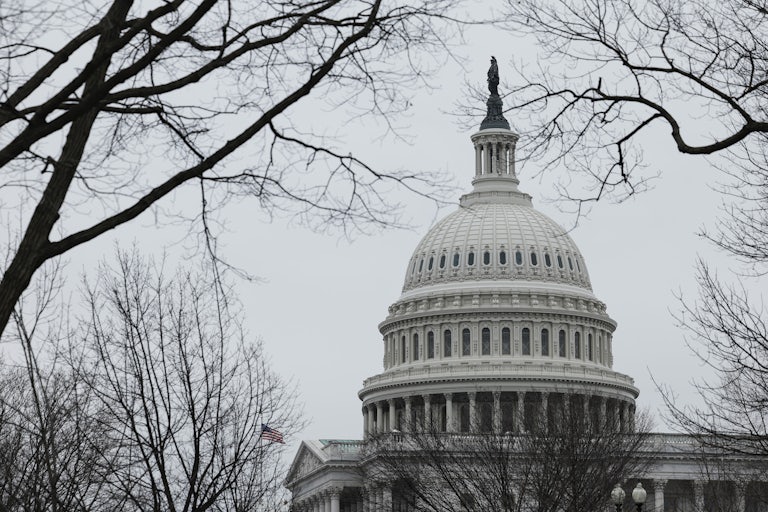Earthquake Kills More Than 2,300 People in Turkey, Syria, as Death Toll Quickly Rises
This was the worst earthquake the two countries have seen in nearly a century.

The United States prepared Monday to send aid to Turkey and Syria in the wake of the worst earthquake the two countries have seen in almost a century.
The 7.8-magnitude quake occurred in the early morning near the border between the two countries, leveling swathes of towns and killing more than 2,300 people. The tremor, which was felt as far away as Greenland, was followed by more than 50 aftershocks, including a 7.5-magnitude earthquake that rattled ongoing search and rescue operations.
“We stand ready to provide any and all needed assistance,” White House national security adviser Jake Sullivan said in a statement. “President Biden has directed USAID and other federal government partners to assess U.S. response options to help those most affected.”
Thousands of people are injured, and emergency responders are rushing to rescue people trapped under the rubble of buildings. Officials are unsure how many people are caught in the debris. Turkish President Recep Tayyip Erdogan said at least 5,300 people had been injured and more than 2,800 buildings had collapsed. He warned that he had no clue how much the death toll would rise as rescue efforts continued.

To make matters worse, the region is being buffeted by biting winter weather, hindering rescue attempts and also endangering people who are now without shelter.
Many of the Turkish cities that were affected were filled with Syrian refugees who had fled the civil war in their home country. In Syria, where the war has taken a heavy toll on infrastructure, officials had to cut off natural gas and power supplies throughout the affected region. An earthquake expert at Turkey’s Academy of Sciences urged Syrian officials to check the region’s dams for cracks, which could lead to devastating flooding.
“Truthfully the situation is disastrous,” Raed Saleh, the head of Syria’s civil defense group the White Helmets, told NPR. “The hospitals are all completely full.”
“We can’t estimate the damages or know how many people have been killed.”








